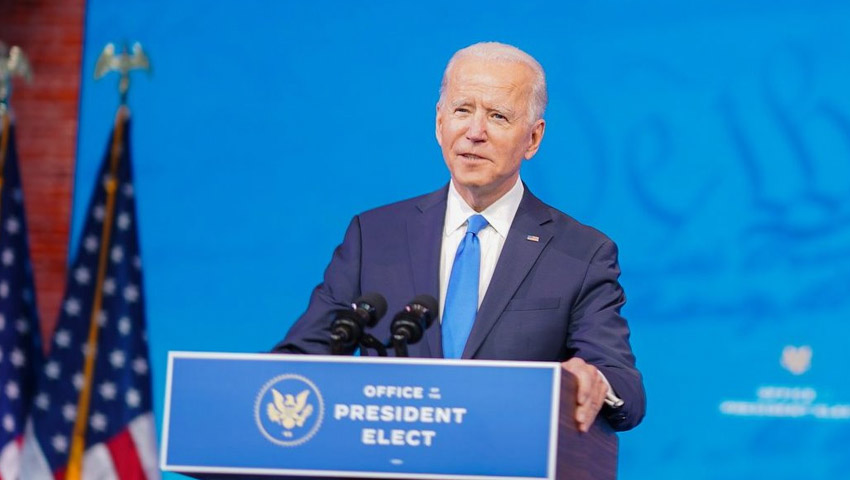A series of unfortunate events seeks to unravel the recent dialogue behind the new Iran nuclear deal.
To continue reading the rest of this article, please log in.
Create free account to get unlimited news articles and more!
The Biden administration’s conciliatory approach to renegotiating the Obama-era Iran deal have many in the Middle East sitting on the edge of their seats. Undoubtedly, the Iranian regime will be emboldened from the renegotiation of the nuclear deal, which will send President Hassan Rouhani and Supreme Leader Ayatollah Ali Khamenei signals that the West is willing to forgive and forget Iran’s rampant imperialism in the Middle East over the last decade, having bolstered their proxies in Iraq, Syria, Lebanon and Yemen, plus an attempted revolution in Bahrain.
However, over recent weeks, the Iranian government has been set back by a series of unfortunate events. First the suspected Iranian spy ship Saviz was attacked with mines at sea. It is thought that the Saviz helped to co-ordinate the Iranian backed Houthis in Yemen. Second, there was an explosion at Iran's Natanz nuclear reactor, which resulted in large scale energy shortages and disabled the centrifuges that are seeking to enrich uranium. Many around the world suggest that perhaps Iran's most vocal rival, Israel, is to blame for both attacks. At least, Iran certainly thinks so.
Dr Rodger Shanahan in the Lowy Institute’s Interpreter outlined that the attack on the alleged Iranian spy ship occurred on the same day as that the US re-initiated their negotiations with Iran for the Joint Comprehensive Plan of Action.
“The Saviz, said to be a 'spy ship' used by the Iranian Revolutionary Guards Corps, has been anchored in the Red Sea in international waters off the coast of Yemen since late 2016 so could have been targeted at any stage. The fact that the attack occurred the same day that the nuclear talks began in Vienna cannot have been a coincidence,” Dr Shanahan outlined.
Following this on Sunday, 11 April 2021, an explosion occurred at the Natanz nuclear facility in Iran following a cyberattack on the plant’s centrifuges, resulting in a large-scale blackout. The attack coincided with nuclear talks between Iran and the European Union, Britain, Russia and China in Vienna. This is the second such attack at the facility, which comes following the 2010 Stuxnet breach which likewise targeted the facility’s centrifuges. Theorists believe that the Stuxnet attack was executed by an agent in the country, who uploaded malware which lay waiting to be activated. One thing is clear from the Natanz and Saviz events, there are actors in the region who will forcefully oppose the opportunity for the Iranian regime enrich uranium for use in nuclear weapons and continue their ongoing proxy wars.
It is unlikely that the timing of both alleged attacks are pure coincidence. Thus, the road ahead for the White House in ratifying the agreement simply isn’t as smooth sailing as the new administration would like.
In response to the nuclear attacks, Arutz Sheva reported that Iranian Foreign Minister Mohammad Javad Zarif outlined that the destruction of the centrifuges will allow Iran to construct even more efficient nuclear enrichment facilities.
“I assure you that in near future more advanced uranium enrichment centrifuges will be placed in the Natanz facility,” Minister Zarif noted. Furthermore, Iran responded that they will respond to the attack on their Saviz ship. Such hostile dialogue would make it hard for the US to come to an agreement with the nation.
The conciliatory approach to the Iran deal will isolate the West’s allies, threaten our economies and run the risk of ongoing conflict in the region.
Not only will the Iranian enrichment of uranium militarily isolate the Gulf States and Israel, but it will embolden Iran through the forgiveness of the IRGC’s Middle Eastern imperialism – thus incentivising them to continue their ambitious goal of domination throughout the Middle East. With a Lebanon on the edge of collapse and a re-enforced Syria and Hezbollah, we will see Iran fortify their position in the Levant and continue to dominate the battlefields of Yemen while potentially reigniting the Bahrain conflict. In this situation, an emboldened IRGC will be the dominant force in the Middle East.
Get involved with the discussion and let us know your thoughts on Australia's future role and position in the Indo-Pacific region and what you would like to see from Australia's political leaders in terms of partisan and bipartisan agenda setting in the comments section below, or get in touch with

 Login
Login







